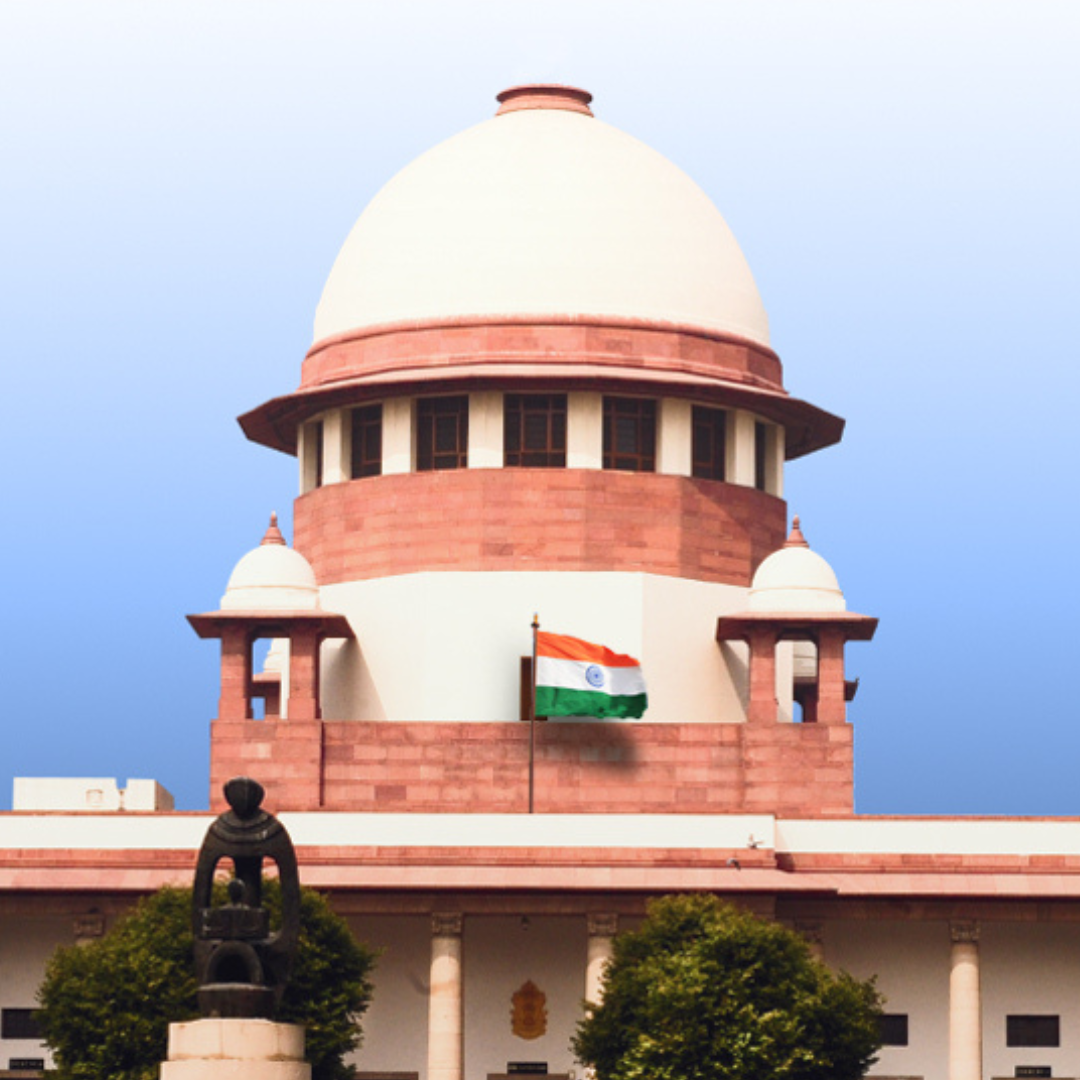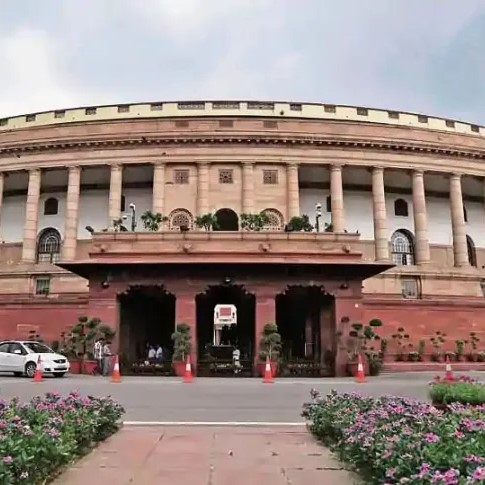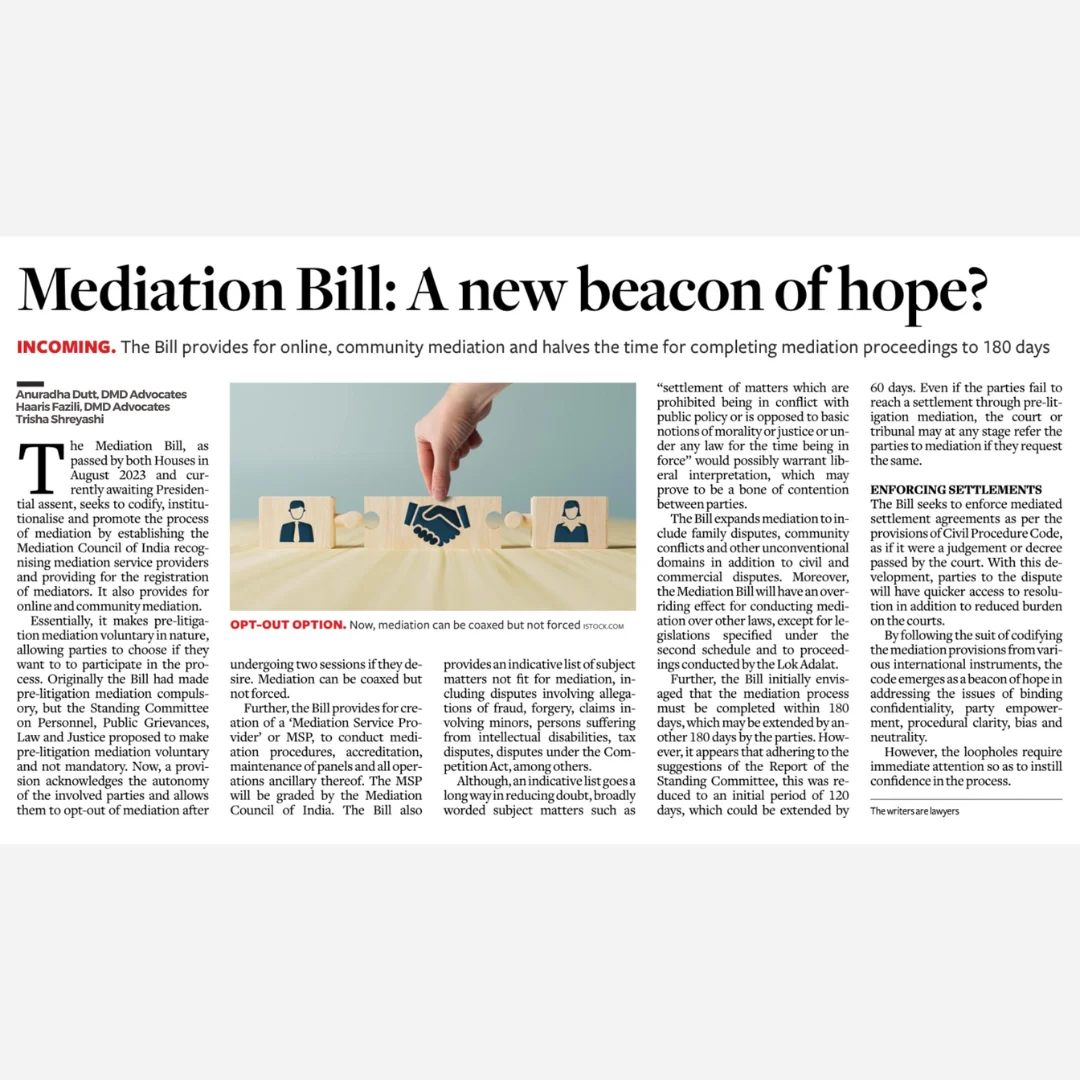Publications
Supreme Court Clarifies Legality of Minimum Service Clauses in Employment Contracts
20 May 2025
- DMD Advocates
- Blog
The Supreme Court in Vijaya Bank & Anr. vs. Prashant B Narnaware has delivered a judgment on the validity of minimum service clauses in employment contracts, especially within the public sector. This decision addresses the enforceability of indemnity bonds in employment, the scope of restraint of trade under Section 27 of the Indian Contract Act, 1872, and the application of public policy principles under Section 23.
Background
Prashant B Narnaware, the respondent, joined Vijaya Bank in 1999 as a Probationary Assistant Manager and was subsequently promoted. In 2006, Vijaya Bank issued a recruitment notification for officer positions, which included Clause 9(w) requiring selected candidates to execute an indemnity bond of INR 2,00,000, payable if they left service before completing three years. A similar condition was reiterated in the respondent’s appointment letter dated August 7, 2007 (Clause 11(k)), when he was appointed as Senior Manager-Cost Accountant.
Upon accepting this offer and executing the indemnity bond, Narnaware resigned from his previous role and joined Vijaya Bank on September 28, 2007. However, before completing the stipulated three-year period, he resigned on July 17, 2009, to join IDBI Bank. Though he paid the indemnity amount under protest, he filed a writ petition before the High Court challenging Clauses 9(w) and 11(k) as unconstitutional and contrary to Sections 23 and 27 of the Contract Act.
The High Court quashed Clause 11(k) and ordered a refund of the amount, relying on an earlier decision in BEML Ltd. v. Satya Narayan Pandey (W.A. No. 2736/2009 ). Vijaya Bank appealed to the Supreme Court.
Supreme Court’s Decision
Allowing the appeal, the Supreme Court reversed the High Court’s judgment and upheld the enforceability of Clause 11(k).
Restraint of Trade – Section 27, Contract Act
The Court ruled that Clause 11(k) did not fall within the ambit of restraint of trade under Section 27. The restriction was held to operate only during the subsistence of the employment, and not beyond termination in this particular case. Relying on the precedent in Niranjan Shankar Golikari v. Century Spinning and Manufacturing Co. Ltd.(1967 SCC SC 72) and Superintendence Co. (P) Ltd. v. Krishan Murgai ((1981) 2 SCC 246), the Court observed that negative covenants during the term of employment are generally enforceable unless they are unconscionable or excessively harsh. Since the clause merely sought to ensure a minimum tenure and did not restrict future employment, it could not be construed as a restraint of trade.
Public Policy – Section 23, Contract Act
The Court acknowledged the concerns surrounding standard form contracts, including the issue of unequal bargaining power. Nevertheless, it emphasized the necessity of examining such clauses within the context of the employment relationship and prevailing industry dynamics.
Highlighting the need for public sector undertakings to retain scarce specialized talent in a liberalized and competitive environment, the Court held that Clause 11(k) was not opposed to public policy. The condition served a legitimate business interest and did not impose a disproportionate burden on the employee.
Liquidated Damages
The Court found the liquidated damages of INR 2,00,000 to be reasonable. Considering the seniority of the respondent, the lucrative nature of the job, and the costs involved in the recruitment process, the clause was justified. The amount was not so high as to act as a deterrent to resignation and was proportional to the employer’s genuine losses from premature attrition.
High Court’s Misplaced Reliance on BEML Case
The Supreme Court distinguished BEML case (supra), noting that in that case, the restriction extended to future employment, unlike Clause 11(k), which only operated during the employment term. Additionally, the High Court in BEML did not consider the employer’s financial and operational losses, which were relevant in the present case.
Key Legal Principles Affirmed
1. Validity of Restrictive Covenants During Employment: Covenants that restrict an employee’s conduct during the term of employment are not void under Section 27.
2. Public Policy Considerations: Unequal bargaining power in standard form contracts must be assessed contextually, especially in specialized employment. Clauses designed to protect legitimate business interests in a competitive market do not necessarily violate public policy.
3. Burden of Proof: The onus lies on the employer to establish that a restrictive clause is not in restraint of trade or against public policy.
4. Reasonableness of Liquidated Damages: Courts must assess the proportionality of liquidated damages in light of the employer’s operational losses and the employee’s role and remuneration.
Conclusion
The Supreme Court’s judgment clarifies the distinction between restrictive covenants operating during and after employment for the purpose of Section 27 of the Contract Act. It also provides a nuanced perspective on applying the concept of public policy to employment contracts in the context of public sector undertakings needing to retain skilled employees in a competitive market. The decision underscores that the reasonableness of liquidated damages must be assessed in light of the employer’s genuine losses and the employee’s position and circumstances. The judgment also highlights the importance of considering the specific factual matrix of each case when applying previous judicial pronouncements.
Credits: Srishti Pandey, Associate, DMD Advocates


































